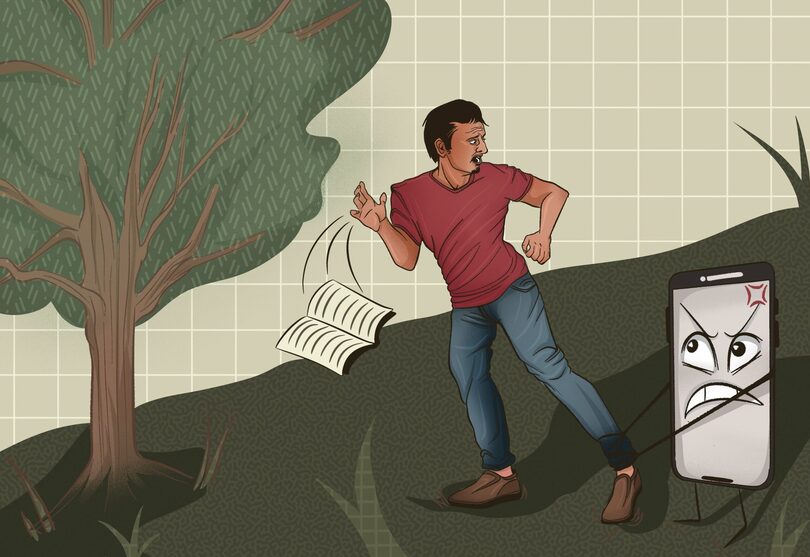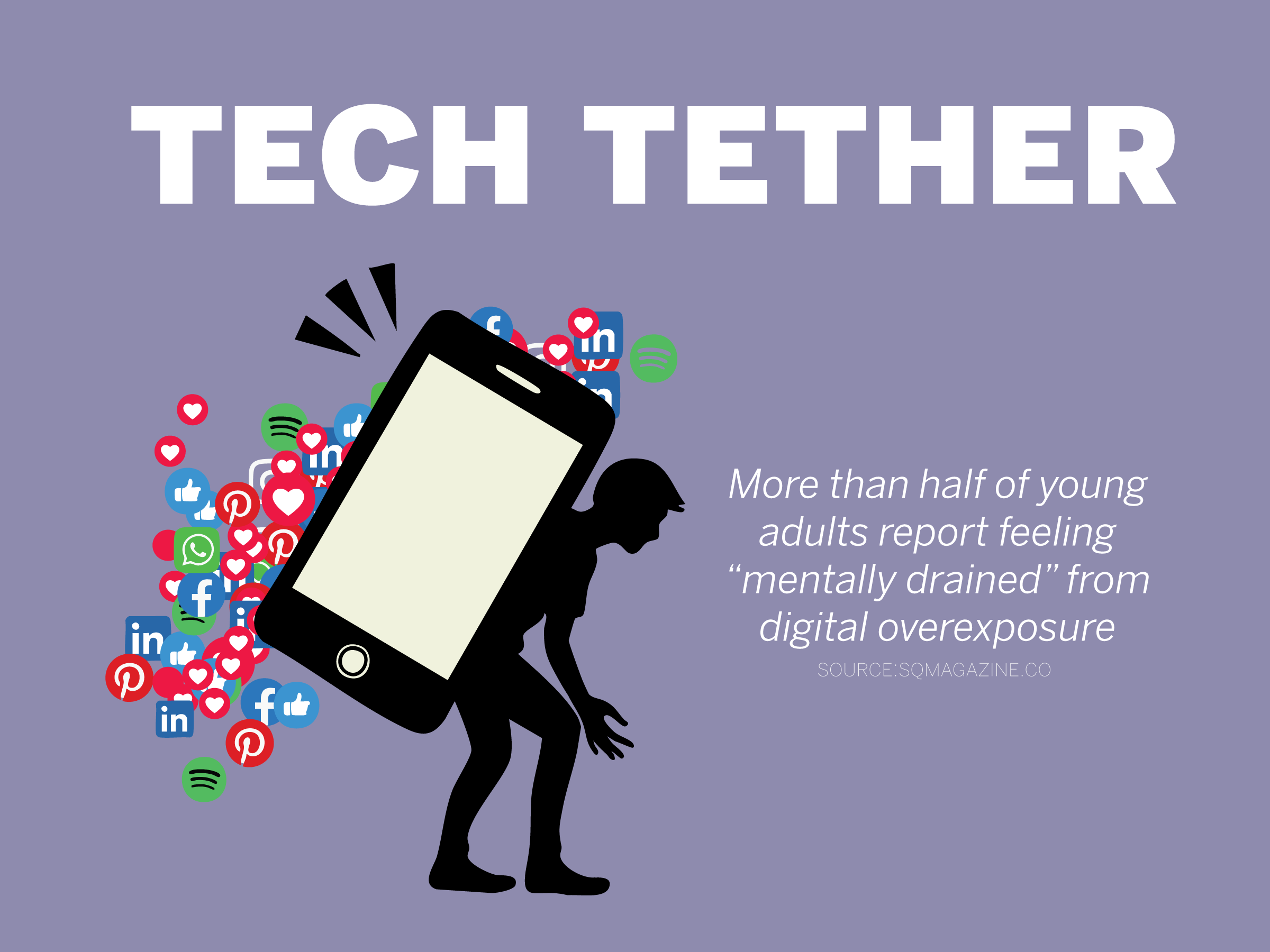Personal Essay: While unsustainable, my digital detox proves technology’s danger

The more humanity depends on technology, our columnist writes, the more we suffer its negative impact on our health. She found ways to replace her screen time in a 24-hour digital detox, despite it being unsustainable in 2025. Emma Soto | Contributing Illustrator
Get the latest Syracuse news delivered right to your inbox.
Subscribe to our newsletter here.
Being back on campus has brought a detrimental aspect of my lifestyle to light. Between keeping up with both my schoolwork and social life in the current digital age, my screen time has exceeded what I would consider healthy, and it’s taking its toll.
Today’s digital landscape has made it possible for people to communicate with each other globally, research any topic they can imagine with the internet and make the world generally more accessible. The more humanity depends on technology, though, the more we suffer its negative impact on our health.
Most nights before bed, I find myself in front of my laptop, doing some last-minute studying or on FaceTime with a friend. The next day, I’m exhausted and more easily distracted during lectures and homework. Certain assignments take me much longer to complete due to my sluggishness, which leads me to stay up late finishing work and feeding the cycle all over again.
Last week, what seemed to be a cure-all for my problems ironically came across my Pinterest feed: a 24-hour digital detox. No cell phones, no computers and no screens for an entire day.
At first, it seemed like an easy task. While the number of teens who report being online “almost constantly” has roughly doubled in the last decade, I felt immune to such dependency. A successful detox would be an easy way to prove that to myself.
But these 24 hours were incredibly uncomfortable.
I completed the detox last Sunday so I could wake up naturally without worrying about classes. This was also the last day of family weekend, so I got to have breakfast with my family before they went home.
After they left, I did a deep clean of my dorm and a load of laundry in half the time it would have taken if my phone was on. Often, when I’m doing chores and my phone goes off, I feel a need to check it even if the notification itself is unimportant.
The next thing I know, I’ve wasted 30 minutes doomscrolling on Instagram. Without the distraction of a phone, I was much more productive and attentive.
But once I finished all my chores – and realized I couldn’t do much homework because it’s all online – I desperately wanted to talk to my friends. My roommates were all busy, though, and I couldn’t use my phone to contact my friends in other buildings.
I was quickly hit with the reality of how much I rely on technology to communicate with others – not just those hours away from home, but also those minutes away on campus. I didn’t expect to feel so isolated without my device.
On the other hand, I felt more motivated to get stuff done just to fill the void it left.
I usually put the gym and chores on the back burner to prioritize studying, but once I’m finished, I’m drained of motivation for anything else. Without screens, I had more energy to not only get my chores done, but also to go to the gym and library.
The detox didn’t just show me how much I rely on technology for convenience, but also how it’s found its way into every aspect of our daily lives.

Sophia Burke | Digital Design Director
As students, we take notes on our computers during lectures and then do our homework online. Even when I went to the gym, I noticed that I couldn’t use most of the cardio machines because of the screens used to track people’s workouts.
It’s nearly impossible to sustain this lifestyle for an extended period of time, despite how much healthier and more present it made me feel.
Our society relies so heavily on digital technology that functioning without screens feels like a daunting task. That doesn’t mean there aren’t ways to reduce usage, though.
A sustainable alternative is as simple as deleting unimportant apps that you find yourself drawn to the most, or setting screen time limits for recreational media to limit the temptation of scrolling.
Many of my professors have mandated pen-and-paper notes, a practice that students can apply on their own to to pay closer attention in class and greatly decrease screen time. This prevents eye strain and helps you stay focused on the subject at hand without distractions in other tabs. Students might not be able to go completely analogue, but a little change can go a long way.
Societal dependency on technology isn’t an excuse to fall victim to it. For the many ways technology has become imperative to our function, we can find many others to replace it. At this point, there are many environments that require it, but taking advantage of those that don’t can be the change we need to lead healthier, more productive and interconnected lives.
Hannah Hewitson is a freshman majoring in journalism. She can be reached at hrhewits@syr.edu




